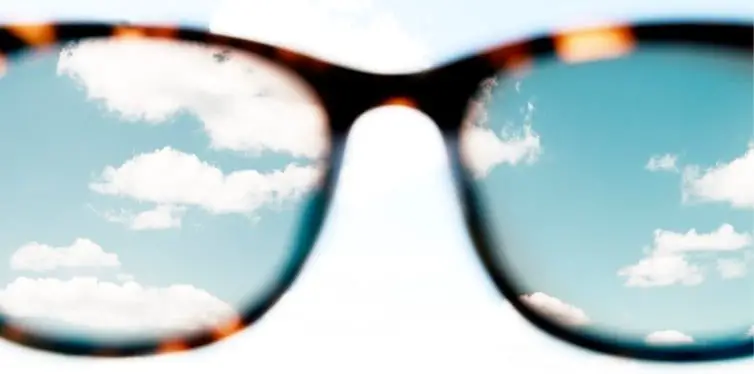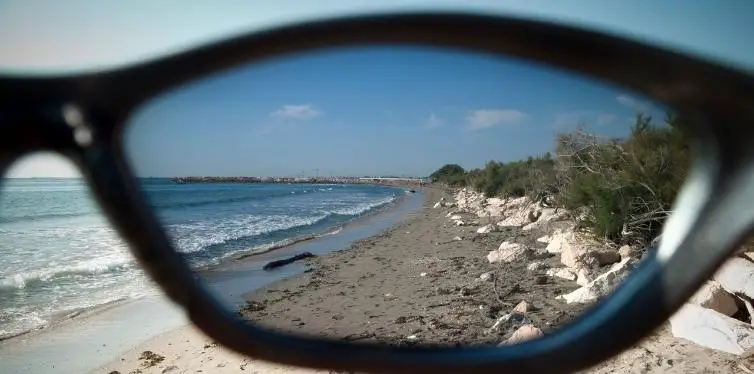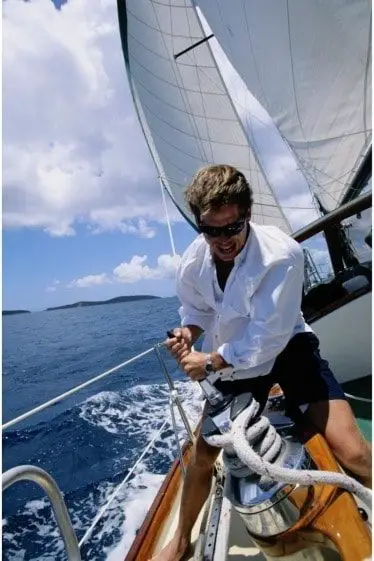Prescription sailing sunglasses are necessary for those that need their vision corrected while sailing. But do you really need them to be polarized, or can you do without?
As you will see, polarized lenses are a critical component to eye safety and your long term health. They are the best lenses for any bright conditions while out on the water.
For example, the sun isn’t your only bright problem while sailing. You still have to deal with glare from the boat, sails, and reflections from the water that can be detrimental to your eye health.
Polarized Sailing Sunglasses: An Overview

Sailing sunglasses with polarized lenses can offer a complete package when it comes to eye protection. Not only must you worry about salt spray, but harmful UV rays such as UVB rays and UVA rays.
Sunglasses for sailing are different from your everyday pair of sunglasses, ones comparable that are found in dollar stores or slightly nicer ones, aren’t going to cut it. For example, Oakley sailing sunglasses offer a great variety so you can find a quality pair meant for time out on the water.
If you want to be happy sailing with clear vision, it’s worth the extra cost to invest in a pair of sailing sunglasses with polarized lenses. Most sailing sunglasses will do the job, but everyone’s eyes are unique and require important features.
How to Choose the Best Sailing Sunglasses with Polarization

Choosing the right sailing sunglasses with polarized lenses can be a tough task. With so many options, it can feel overwhelming.
However, there are ways to narrow down your search. These important factors can save you time to find the perfect pair of sailing sunglasses.
UV Protection
The most important aspect of maximum protection for your eyes is to block harmful UV rays. Typical shaded sunglasses won’t do the trick.
UV radiation needs to be blocked for a variety of reasons on our skin and eyes. It’s crucial to know the quality of what you’re buying so that it does the job.
When purchasing, look for a CE mark to show that it meets quality standards within the European Union. The category it’s in will tell you how much sunlight is allowed through the lens.
Hydrophobic and Oleophobic Coatings
A hydrophobic coating is designed to repel water and decrease salt residue on your sailing sunglasses. This water-repellent coating is important to shed water spots and save you time when cleaning.
An oleophobic coating can be applied to the lenses, which repeals sun lotion, fingerprints, and natural skin oils. A cheap pair of sunglasses won’t have this, but it’s all about personal preference on higher-end sunglasses.
Anti-Reflective, Anti-Glare, and Anti-Fog
A good pair of sailing sunglasses need to be able to reflect light away from your eyes. Find ones that have an anti-reflective coating.
If not, then you need to at least have some that reduce glare. Over the course of a day, maybe even a few hours, glare can damage your eyes and cause strain or fatigue. Reducing glare is just as important as reflecting light away.
Anti-fog is a handy feature in some sunglasses for sailing that can save you time and provide safety so that you see various objects no matter what. No one likes fog building up on their sunglasses while racing or sailing.
Lens Shape
The shape of your lenses in the sailing sunglasses matters to the shape of your face. In most stylish settings, you want the lenses to be opposite to your face shape. So in some cases, you want flatter lenses or even a rimless frame.
Don’t worry if you have difficulty finding the right color and shape of lenses at first. There are plenty of brands that have multiple sizes for lenses, colors, and price ranges to choose from.
Lens Colors
As for the color of your lens, this needs to be narrowed down to your style of sailing and what you plan to do on the water.
For sunny conditions, choosing a blue tint or gray lens is the best bet. And if you need prescription sailing sunglasses, they can also be polarized.
Anti-Corrosion
Salt water has an enormous corrosive power on sailing sunglasses. This is why it’s important to invest in ones that will stand up to the wear and tear from the ocean.
Budget
The only reason you would shy away from some sunglasses for sailing is that they are too expensive. Luckily, sailing sunglasses like Maui Jim sunglasses, Gill sunglasses, and Oakley sunglasses have affordable pairs that anyone can afford.
Buying sailing sunglasses from brands like Maui Jim are a great start since they’ve been around in the 1980’s, so they know a thing or two. Maui Jim sailing sunglasses have proven to be good quality, along with Oakley and Gill.
In addition to sunglasses, you could check for a pair of reading glasses from one of these brands. Most nowadays offer the best sunglasses in addition to other eye care needs.
Durable and Lightweight
Nothing is worse than eagerly waiting on a new pair of sunglasses and having them break after a few months. For those that have sailed, you understand the importance of ultimate comfort, shock resistant, scratch resistant sunglasses.
The best sailing sunglasses are super lightweight, or enough that you forget you have them on.
Ones with interchangeable lenses or photochromic technology might be slightly heavier, but useful to those that want those features. Photochromic lenses change shade based on the amount of sunlight out.
How to Keep Your Sunglasses Safe While Sailing

If you’ve spent a lot of time and money buying the best sailing sunglasses, you need to keep them safe. Eye protection goes out the window if you can’t take care of your possessions.
Lanyard
A lanyard will help keep your sunglasses from falling off your body while sailing.
While some big name brands offer expensive lanyards that are somewhat boring, try out some made by small businesses or ones made local.
Correct Fit
The best sailing sunglasses need to fit your personal style and your head. An improper fit leads to them falling off, you not being able to see correctly, or harmful UVA affecting your vision. The right sunglasses need to accommodate your specific face.
Floating Frames
In case you don’t have a lanyard, a pair of sunglasses that float could be useful. It’s better to have a pair of sunglasses for sailing that floats than not having your UV protection.
Heavy-Duty Case
When not in use, your sunglasses need to be in a heavy-duty case. These often come with a cleaning cloth to wipe off any residue. No matter how much impact resistance the glasses have, it’s safer to keep it locked away in a case to provide an increase in shock resistance.
Final Thoughts
When buying sunglasses, you can’t jump straight into the first pair that you see. A variety of factors for the best sunglasses come into play, such as less resistance to shock, anti-corrosion, resistance to UVB and UVA rays, and budget.
On top of that, sunglasses for sailing have to keep your eyes protected from glare, bright sunlight, and salt from the water. That is why premium sailing sunglasses are worth the investment and are the best sunglasses.


